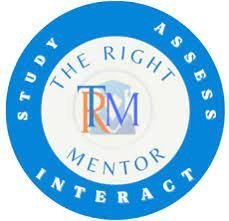Your cart is currently empty!
Pre-Requisires
Test & Enrich
Components of Food | Speed Notes
Notes For Quick Coverage
Nutrients: Food substances that provide nourishment to the body are called nutrients.
The major nutrients in our food are carbohydrates, proteins, fats, vitamins and minerals. In addition, food also contains dietary fibres and water. Carbohydrates and fats mainly provide energy to our body. (Scroll down to continue …)
Study Tools
Audio, Visual & Digital Content
Carbohydrates: Carbohydrates are energy-giving compounds.
Cellulose, starch and sugar are the examples of carbohydrates.
There may be simple carbohydrates or complex carbohydrates.
Fats: Fats are very high energy-giving compounds. They produce greater amount of energy than carbohydrates.
Sources of fats: animal fats and vegetable fats.
Carbohydrates and fats are Energy giving food.
Minerals: minerals are the elements required by the body in small amounts. Minerals are essential for growth and development of bones, teeth and red blood cells.
Proteins: These are body-building foods. They help in growth of the body.
Vitamins: These are organic substances that protect the body from diseases.
Roughage: It is the dietary fibre present in the food. It facilitates regular movement of the bowels and prevents constipation.
Note: Dietary fibre and water are not food.
Balanced diet: It provides all the nutrients that our body needs, in right quantities, along with adequate amount of roughage and water.
Deficiency Diseases: These are the diseases cause due to the lack of required nutrients for a long period in the diet.
Malnutrition: when a person eats enough of food but his diet is unbalanced, it isknown as malnutrition.
Undernutrition: A person not eating sufficient food to maintain good health suffers from undernutrition.
Some Nutrients Deficiency Diseases:
Protein: Kwashiorkar – Stunted growth, thinning of legs, protruding belly.
Protein and Carbohydrates – Marasmus – Complete/partial arrest of growth, lack of energy.
Vitamin D and calcium: Rickets – Bowed legs, bent spine, deformed bones are joints.
Vitamin C: Scurvy – Bleeding and swelling of gums, weakness.
Iodine: Goitre – Enlargement of thyroid gland, retarded growth.
Iron – Anaemia – Fatigue, loss of appetite, pale skin.
Vitamin K: Bleeding disease- delay in blood clotting leads to excess bleeding.
Beri-beri: Vitamin B1 – weakness in muscles, little energy to do work, paralysis
Night blindness – Vitamin A – No vision at night or in dim light.
Dig Deep
Topic Level Resources
Sub – Topics
Select A Topic
Topic:
Chapters Index
Select Another Chapter
- CBSE 6 | Mathematics – Study – Premium
- CBSE 6 | Science – Study – Premium
- CBSE 6 | Mathematics – Study – Premium
- Copy of COMPONENTS OF FOOD | Study
- COMPONENTS OF FOOD | Study
- SORTING MATERIALS INTO GROUPS | Study
- SEPARATION OF SUBSTANCES | Study
- GETTING TO KNOW PLANTS | Study
- BODY MOVEMENTS | Study
- THE LIVING ORGANISMS — CHARACTERISTICS AND HABITATS | Study
- MOTION AND MEASUREMENT OF DISTANCES | Study
- LIGHT, SHADOWS AND REFLECTIONS | Study
- ELECTRICITY AND CIRCUITS | Study
- FUN WITH MAGNETS | Study
- AIR AROUND US | Study
Assessments
Personalised Assessments
Dig Deep
Deep Learning And Testing
Here you can switch between educational tools ( Study & Assess) By Filtering Or Search for Title.



Leave a Reply
You must be logged in to post a comment.